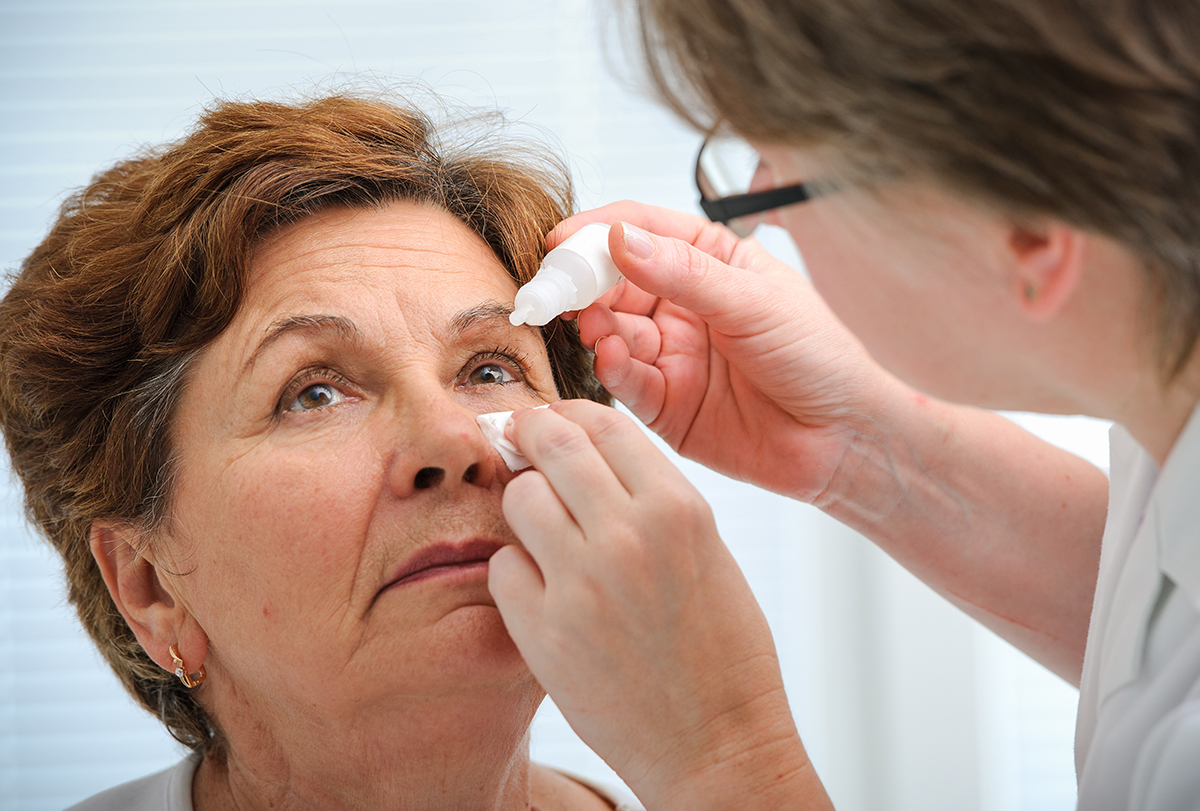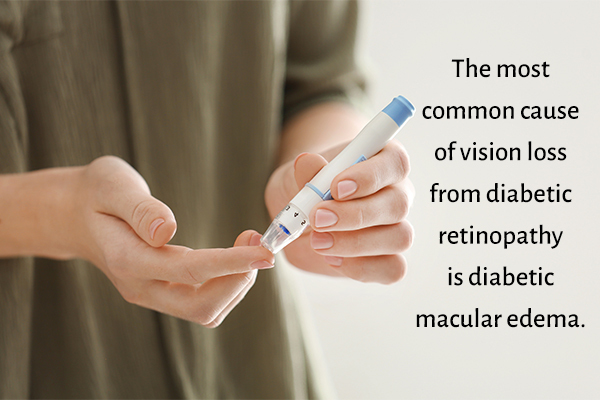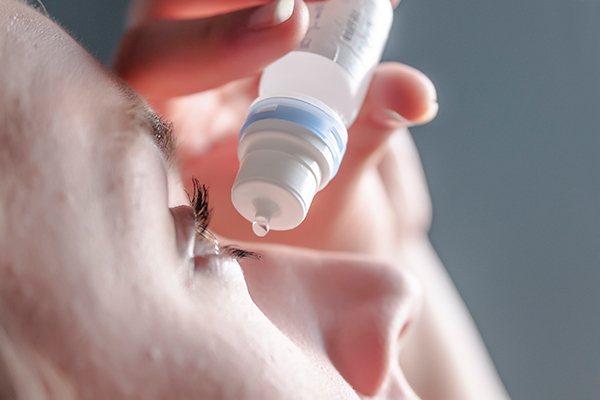In this article:
The retina is a layer of tissue at the back of the eye that senses light and sends images to the brain. In the center of this nerve tissue is the macula, which is the region of the eye that is responsible for central, detailed, and color vision.

Macular edema (1) is the buildup of fluid in the macula from leaking blood vessels in the retina. The more widespread, thicker, and more severe the swelling in the macula, the more likely one will notice visual symptoms.
Major Causes of Macular Edema
It is important to understand that macular edema is not a disease in itself but the result of an underlying condition or multiple underlying conditions, such as:
Diabetes: The Leading Cause of Macular Edema

Most cases of macular edema occur as a complication of underlying diabetes. Not just that, the most common cause of vision loss from diabetic retinopathy is diabetic macular edema. (10)
Diabetic macular edema results from hyperglycemia-induced activation of pathways that leads to oxidative stress and the release of cytokines that impair the inner and outer blood-retinal barriers.
The disruption of the inner and outer blood-retinal barriers leads to abnormal inflow of fluid into the neurosensory retina that can exceed the outflow and cause residual accumulation of fluid in the intraretinal layers of the macula.
Common Signs and Symptoms of Macular Edema
The primary symptom of macular edema is blurry or distorted vision near or at the center of a person’s field of vision. In addition, colors may appear washed out or faded.
Depending on the amount of macular edema present, the severity of symptoms may range from mild and asymptomatic to profound vision loss. (11)
Medical Treatment for Macular Edema

Treating macular edema essentially requires addressing the root cause of the problem. Thus, the doctor will recommend the appropriate treatment after making a thorough diagnosis.
The most commonly used interventions for this purpose include:
- Oral medications
- Eyedrops
- Intraocular injections of medication
- Laser treatment
- Surgery (12)
The visual prognosis after instituting treatment with one or more treatment modalities depends on the severity of the underlying condition, its duration, and the general health of the eye.
Serious Complications Associated With Macular Edema
Untreated chronic macular edema can lead to permanent damage to the retinal architecture and permanent vision loss. (13)
Is It Normal to Develop Macular Edema After a Cataract Surgery?

Irvine-Gass syndrome, also known as postoperative macular edema, is a common complication of cataract surgery. (13)
A prior history of diabetes, retinal detachment, ocular inflammation, retinal vein occlusion, epiretinal membrane, and ocular prostaglandin use have all been associated with an increased risk of macular edema after cataract surgery.
In addition, intraoperative complications during cataract surgery have been associated with a higher incidence of postoperative macular edema.
The pathogenesis of macular edema after cataract surgery is thought to be multifactorial, but the core mechanism is likely surgically induced inflammation. Intraocular inflammation upregulates endogenous inflammatory mediators that increase vasopermeability, leading to the development of macular edema.
Final Word
Given the heterogeneous etiology of macular edema, therapeutic approaches are dependent on a sound understanding of the underlying etiology. It is a common occurrence along with a variety of retinal problems, but the good thing is almost all of them are fairly treatable.
However, prolonged, untreated macular edema can lead to irreversible retinal damage and permanent vision loss, which is why timely treatment is of utmost importance. The rate of recovery after starting treatment can vary from patient to patient, depending on the extent of retinal damage, the severity of the underlying cause, and the overall condition of the eye.
- Was this article helpful?
- YES, THANKS!NOT REALLY


